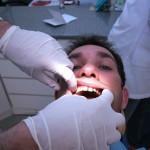
On 14th May 2010, when Kenneth Clarke returned to the Ministry of Justice, the prison population in England and Wales was 85,009. When he had previously been Home Secretary in 1992-93, the average prison population had been 44,628 (Prison Briefing 2010). This represents a 90% increase in a period when crime rates were generally falling. The [read the full story…]










